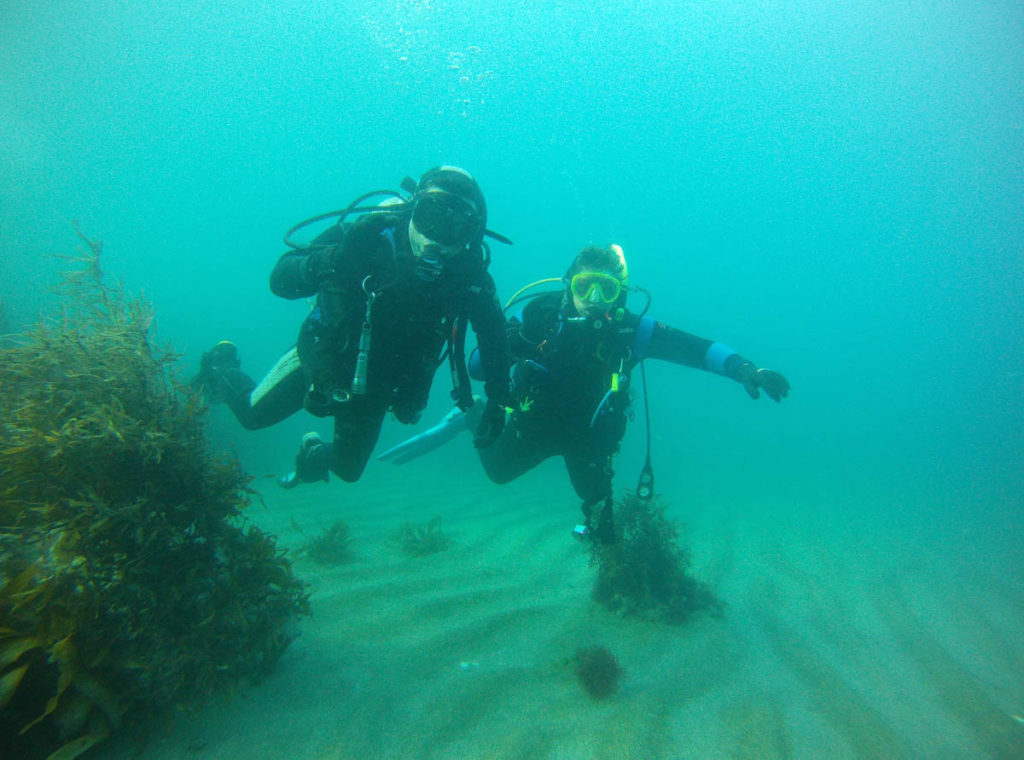Safety is almost always at the forefront of any divers thinking, but occasionally and commonly even the most experienced and qualified enthusiasts find themselves in an uncomfortable situation. The inevitable will come for every diver when a little surprise catches them off guard and they need to re-group a little to regain control of the dive. For the most part, in an ideal world, this is all any diver would really want or expect to happen.
Be a S.A.F.E. Diver and Slowly Ascend from Every Dive.
Keeping an eye on air consumption is an absolute must. New Open Water Diver standards require divers to be able to estimate their remaining air supply when prompted within 20 bar of what is left in the tank without looking at the gauges. In short, keep an eye on your gauges and be constantly conscious of how much air you have, after all, it’s the only thing that is enabling you to be under the water in the first place.
“It’ll be OK this time” Well, not really. Getting certified to SCUBA Dive as a PADI Open Water Diver is largely a very empowering experience. To a degree it’s the confidence you gain in how to safely deal with situations underwater that keeps you calm and able to think logically before correcting any problems. Missing things like buddy checks, not paying enough attention to air supply, poor buddy contact, bad buoyancy, going deeper than your certified depth because your dive buddies are certified to, even second hand gear that’s of ill repair. It’s not OK just this once.
Keep in mind your training limitations, skills and recommendations. These are there because that’s what has been proven to help keep divers safe. These are developed by experienced professionals and divers through countless instances, often by groups and via surveys of hundreds or even thousands of people with experience and decades of Specialist knowledge and general know how.
Keep your ascent’s slow. That one time when you’re not far from the surface or just feel like letting go, is no exception. Take your time, manage your buoyancy and stay in control while making a slow ascent. Make a safety stop regardless, often its a relaxing way to finish your dive and prepare for reaching the surface.
Be a S.A.F.E. Diver and Slowly Ascend from Every Dive.
A final note and popular opinion is diving with good dive buddies. When you are new to diving it is sometimes easy to be miss-lead by “cowboys”. Early on in the recreational diver training programs it was mandatory for some to log a minimum of 20 dives with your dive instructor to gain the entry level certification, now with just 4 Open Water Dives you’re a certified diver. While training programs have vastly improved, that diver with 20 logged dives was likely at the Rescue Diver level which is achieved now with around 10 dives through Open Water Diver, Advanced Open Water and Rescue Diver. Let’s not forget you can log dives with Scuba professionals outside of courses also.
Sticking with established and reputable dive centers will keep you safe in the onset while you learn the ropes and possibly even get the occasional surprise. With good instruction you’ll be coached through each step with continuing education and come out a much more competent diver to match your confidence. Stick with them or re-group every now and then with a refresher course or ask if you can tag along for a Rescue Diver course. Often you’ll get some great reminders of good practice along the way and have some fun at the same time.
Here is a list of other helpful resources for new and experienced divers alike:
Standard Safe Diving Practices Statement of Understanding
Safe and Enjoyable Diving; Wellington and NZ





